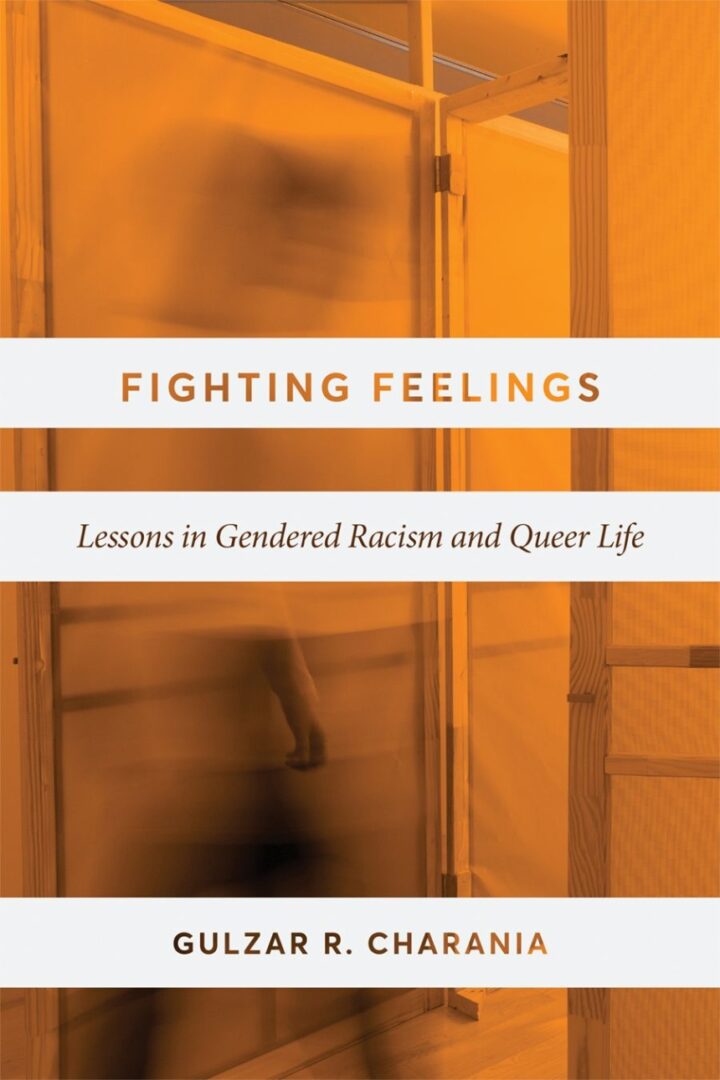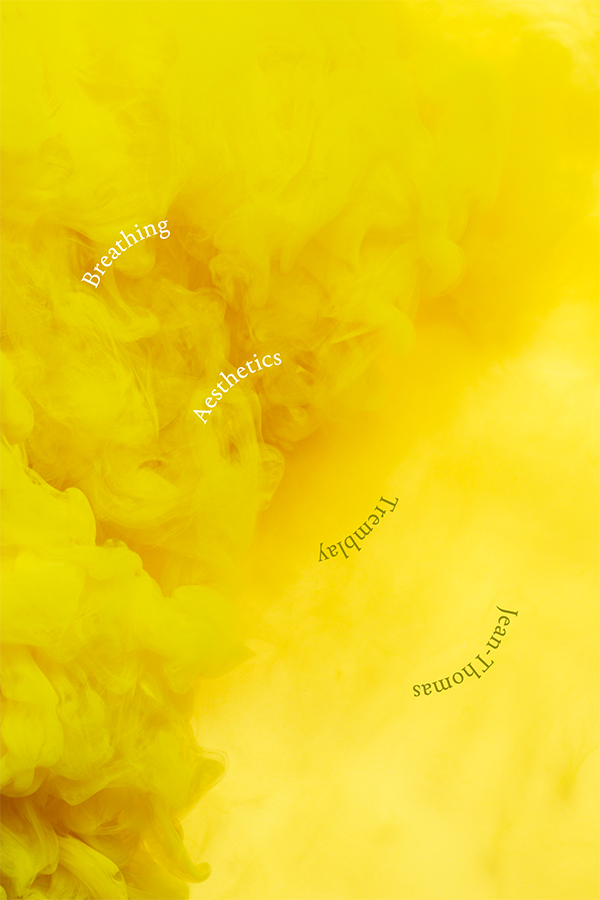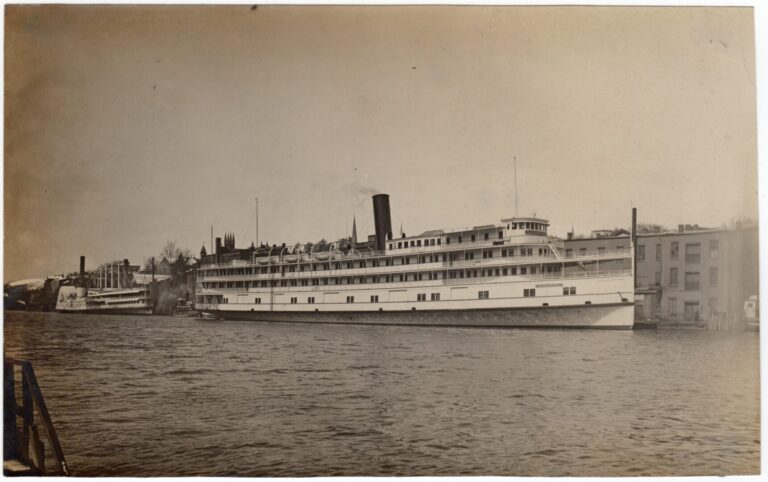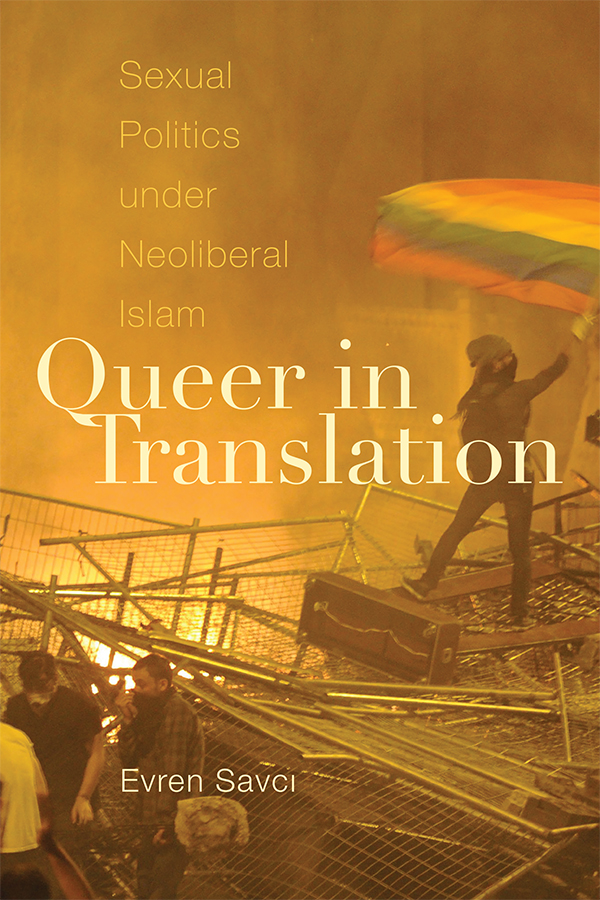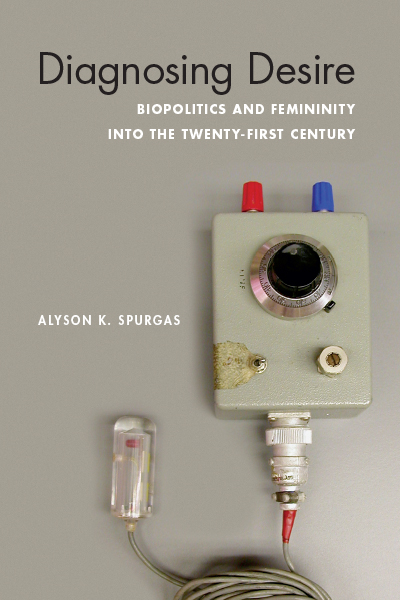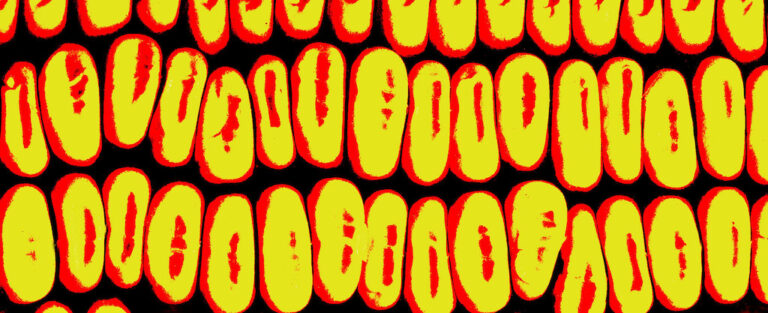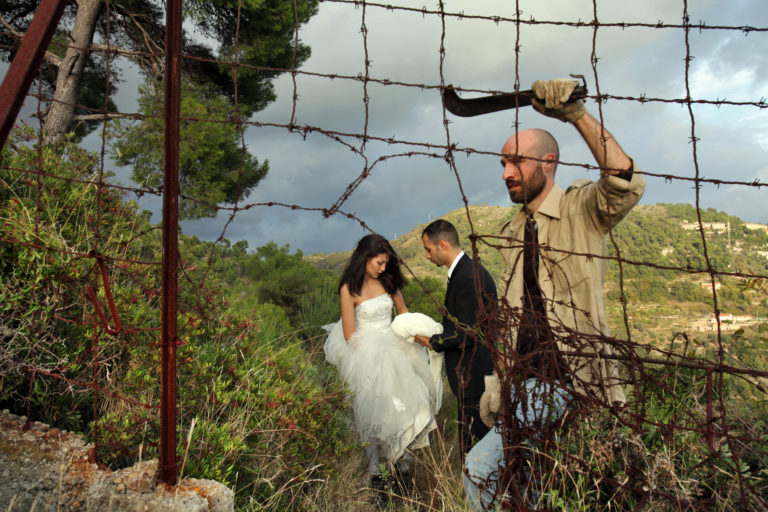In Fighting Feelings: Lessons in Gendered Racism and Queer Life, Gulzar R. Charania explores the gendered racialization of women of color through a plethora of interviews with her participants, paying specific attention to the intersection of identities that these women hold such as gender, race, sexuality, age, and socio-economic status. Charania centers the thoughts and experiences of racialized Black and women of color feminists to provide her readers with critical tools to navigate the lived experiences of racialized women while also acknowledging the violence of dominant narratives entrenched in white supremacy. By attending to the practices of scholars and theorists as well as the lives of her participants, Charania urges readers to reconsider the convergence of gender and sexuality in racialized hierarchies.
Keyword: sexuality
Review of Breathing Aesthetics by Jean-Thomas Tremblay (Duke University Press)
Jean-Thomas Tremblay’s Breathing Aesthetics draws our attention to how respiration as a cultural analytic maps the uneven distribution of risk in our contemporary moment. Intervening at the intersection of queer theory and the environmental humanities, Tremblay deciphers an archive of cultural texts that range from CAConrad’s ritualized poetry to Ana Mendieta’s elemental performance art and Toni Cade Bambara’s novel The Salt Eaters. In so doing, they reveal an understanding of how breath registers precarity across race, gender, and disability, while also serving as a mechanism for healing and care. This discerning analysis, combined with a focus on the exchange between body and milieu, makes a case for respiration as a distinctly ecological and embodied relation. Ultimately, Breathing Aesthetics provides crucial insight into how aesthetic expressions of respiratory variations evidence a tension between morbidity and vitality within bodies whose ability to breathe is most endangered.
“Companionship and a Little Fun”: Investigating Working Women’s Leisure Aboard a Hudson River Steamboat, July 1919
This article provides an in-depth consideration of a single report penned on the night of July 27, 1919 by a private detective employed by New York City’s Committee of Fourteen (1905–1932), an influential anti-vice and police reform organization. A close reading of the undercover sleuth’s account, which details his experiences, subjective judgments, and general observations regarding moral and social conditions while aboard the Benjamin B. Odell, a palatial Hudson River steamboat, enables us to enrich our grasp of the courtship and pleasure-seeking practices popular among working women and men active in New York City’s heterosocial and largely segregated amusement landscape during the so-called “Red Summer.” Specifically, the report reveals how wage-earning women articulated femininity and sought individual freedoms, companionship, pleasure, and romance via Hudson River steamboat excursions. The relatively unsupervised atmosphere of such trips was appealing to some working women because it represented an affordable way to attain companionship, prohibited forms of amusement and entertainment, and sexual gratification, a way that sidestepped many of the reputational hazards typically associated with the search for such goods among mainland leisure spaces. Such opportunities were particularly valuable given the crackdowns on public sexuality and late-night amusement spaces that had followed America’s entry into World War I in 1917 and the advent of “wartime prohibition” on July 1, 1919. The article also supplies important contextual information required for proper appreciation of the investigation report in question, including a discussion of the methods and goals of the Committee of Fourteen and a brief overview of prior efforts by Progressive Era urban moral authorities to uncover and control “white slavery,” gambling, and other “vices” witnessed aboard steamboat excursions operating in and around New York, Chicago, and other coastal cities.
Review of Remembering Our Intimacies: Moʻolelo, Aloha ʻĀina, and Ea by Jamaica Heolimeleikalani Osorio (University of Minnesota Press)
Jamaica Heolimeleikalani Osorio foregrounds the intimate in aloha ʻāina, a Kanaka Maoli conception of caring for land, or that which feeds. She provides a close reading of the classic Hawaiian epic Hiʻiakaikapoliopele alongside contemporary Kanaka Maoli battles with settler colonialism and heteropatriarchy. Osorio engages the uniquely Kanaka Maoli genre of moʻolelo by modulating seamlessly between the interpersonal and structural, analysis and composition, and the nineteenth century and the present day.
Wasted: Wastewater, Hygiene Theatrics, and Contaminated Imaginaries
This collaborative essay takes up three pungent streams of wastewater to address how environments, politics, communities, and power are mediated by liquid waste: urine, feces, and everything else recklessly flushed down toilets, washed down drains, stored in pits, and dumped in the ocean. “Wasted” looks to the multi-scalar worlds of wastewater by centering waste sites and COVID-19 concerns regarding wastewater virality. First, our tour of Santa Barbara’s El Estero Water Resource Center brings us to the variegated, embodied, multi-sensory, and multispecies communities of wastewater. El Estero provides an odoriferous infrastructural current through which we follow wastewater and the socialites and environments it mediates on California’s Central Coast. We then move to the ways wastewater has been interwoven with global pandemic fears to address how human waste retains infectious COVID-19 viral material even after it has been flushed away. COVID-19, in other words, haunts the infrastructural ports through which wastewater is funneled. We conclude with wastewater’s epochal effects within the Anthropocene. Throughout, we offer the term “hygiene theatrics” to identify how the performance of hygiene, cleanliness, and purity rely on dichotomous constructions of dirtiness and cleanliness that reinforce structural power dynamics including racism and homophobia. “Wasted” is a collaborative feminist and queer experiment in form and methodology that explores wastewater as both a material reality and a theoretical apparatus that is informed by and contributes to the environmental humanities, infrastructure studies, and feminist and queer science studies.
Review of Queer in Translation: Sexual Politics under Neoliberal Islam by Evren Savcı (Duke University Press)
Evren Savcı’s Queer in Translation presents an alternative, both in methodology and analysis, to the Orientalist analytical frameworks typical of Western scholars studying queer politics in Middle Eastern regions. Specifically, Savcı analyzes the rise of Turkey’s Adalet ve Kalınma Partisi (AKP; in English, the Justice and Development Party) to show how the AKP’s increased securitization and oppression of marginalized communities—including, but not limited to, Turkey’s LGBTQ community—is the result of the marriage of Islam and neoliberalism. Savci produces compelling case studies that reveal how Turkey’s weaponization of religion, morality, and capitalism serve to secure the nation against dissenting citizens. From the discourse surrounding the complicated murder of a gay Kurdish man, to unlikely solidarities between religious hijabi women and LGBTQ activists, and the public commons that became Gezi Park, Savci’s critical translation methods reveal how the language to construct and resist securitization in Turkey are far more nuanced than simple attribution to solely Islamist extremism or Western neoliberal influence.
Review of Diagnosing Desire: Biopolitics and Femininity into the Twenty-First Century by Alyson K. Spurgas (The Ohio State University Press)
In Diagnosing Desire, Alyson K. Spurgas examines female sexual dysfunction, specifically low desire in women, and refuses to take anything for granted. One part history of modern sexology and one part feminist critique of the biopolitics engendered by sex research, Spurgas uses anti-racist, queer, disability studies, and trauma-informed theories to argue that the apolitical and atheoretical approach used in much of the modern science of sexuality confines women’s sexual desire to a purely receptive model. Spurgas problematizes essentialist, anti-intersectional, and hetero- and cisnormative frameworks through which women’s sexual desire has become a problem to be solved through self-improvement and by learning to push through feelings of low desire. Instead, Spurgas offers insights into the lives of women with low desire by attending to their experiences with inequality and trauma, and proposes a new understanding of women’s sexuality—and of femininity more generally—based on prudent and critical attention to power.
Review of Disruptive Situations: Fractal Orientalism and Queer Strategies in Beirut by Ghassan Moussawi (Temple University Press)
Ghassan Moussawi’s Disruptive Situations challenges the exceptionalist representations of lesbian, gay, bisexual, and trans (LGBT) experiences in Beirut through a focus on the everyday queer strategies and tactics. Moussawi analyzes the everyday practices of LGBT interlocutors navigating al-wad’ (the situation), a term that refers to the normative order of disruptions, precarity, and instability that permeate daily life across contemporary Beirut. Al-wad’ simultaneously features as a historical condition of perpetual instability bearing on daily life in Beirut, as well as a lens to analyze the practices of everyday life for Moussawi’s LGBT interlocutors. Moussawi’s inductive ethnographic approach charts the strategic use of identities, visibility, and “bubbles” or sources of solace in order to challenge exceptionalist representations of Beirut and LGBT experiences in the city. Moussawi critiques these reductive representations as “fractal orientalism”, a reductive representation that embeds hierarchies and exclusion through geographic associations, such as in fashioning Beirut as the “Paris of the Middle East”. Beirut becomes charming and “cosmopolitan” in a way that is similar to, but not quite, the same as Paris. Moussawi’s focus on queer daily practices against the backdrop of al-wad’ shows the limitations of these reductive representations in an effort to reimagine queerness, subjectivity, and politics.
Concealment, Revelation, and Masquerade in Europe’s Asylum Apparatus: Intimate Life at the Border
In 2010, a landmark UK Supreme Court case was won on behalf of two gay men, from Cameroon and Iran, whose applications for asylum due to sexual identity had previously been rejected on the basis of a prevailing “reasonable tolerability” concept—that is, the view that gay applicants could conceal their homosexuality by acting discreetly upon…
